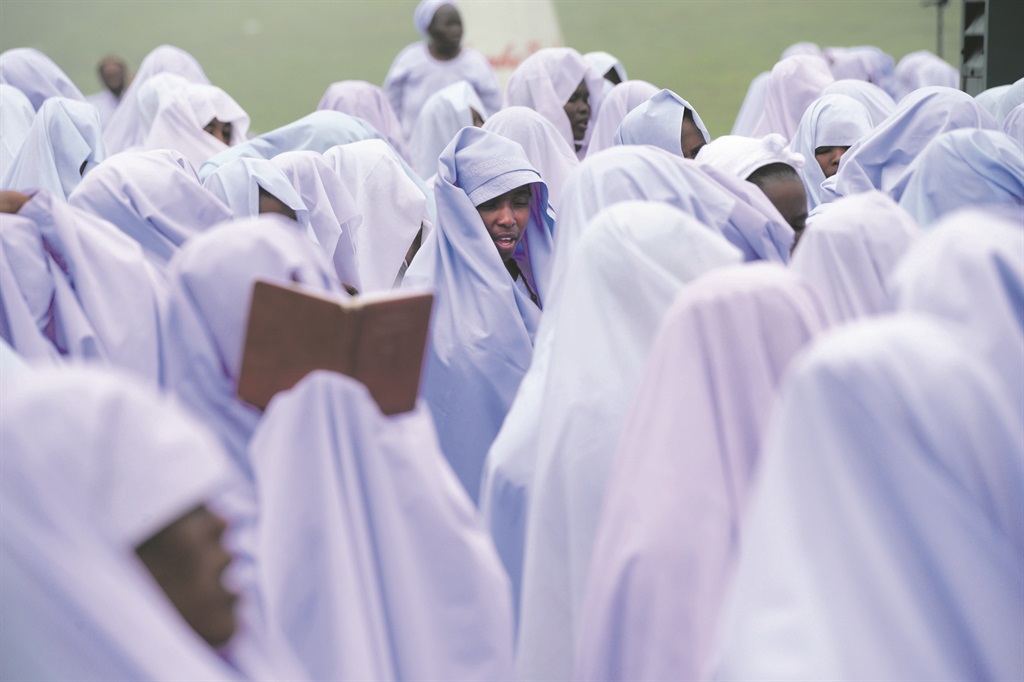
Social change over the past 25 years in the country has been driven politically and legislatively. Government enacted legislation that gave effect to the ideals of our Constitution. Legally, there is little room for discrimination in many facets of our lives, and society has been quick to call offenders to order. As expected, as black South Africans we have been very vigilant on racism. There is a litany of examples of how we called out racism. We took up cudgels and screamed our indignation at this form of discrimination.
I dare to assert, however, that discrimination on grounds of gender has not received its fair share of attention and redress – especially in the context of religion and culture. Much progress has been made on improving the status of women in the country, especially in the workplace. However, it is in the spaces where culture and religion prevail that women remain shackled and on leads – the lengths of which are mainly determined by society, and men in particular. In an article in 2016, Dr Urther Rwafa, a man, writes about how culture and religion remain sources of gender inequality and oppression for most women in Africa. He notes how factors such as biblical notions of the creation of people, polygamy, violence, forced marriages, and women and property ownership, as well as cultural practices such as female circumcision, have informed cultural and religious decisions to justify the oppression of women in contemporary Africa.
South African blacks are battling with the fine balancing of rights already given by the church to women, and their own traditional beliefs on the role and status of women.
Recently we have seen how the Methodist Church grappled with statements made by a male priest, which were deemed discriminatory and belittling to women leadership in that church. The first woman to be ordained in the Methodist Church of Southern Africa was Reverend Constance Oosthuizen in 1976, 160 years after the church was established. Although it is 43 years since women were officially accepted in the pulpit of that church, researchers find that they are still victims of sexual harassment, discrimination and patriarchy.
In 2015, reverends Fanie Mkhwanazi and Tias Kgatla wrote of the challenges women priests encountered. These included church members who upheld the rule that female ministers had to have their heads covered during services, as wives are required to in the black traditional communities. Some conservative congregants refused female ministers the right to perform burials and numerous questions arose from chauvinistic males, including whether female ministers may administer sacraments during their menstruation.
All these serve to highlight that social change takes time but we need to focus on the positive changes made by the church. Any man who went into a coma in 1900 and woke up now would be shocked to see women ministering. That is the essence of social change; society moves forward by evolutionary means.
Discrimination based on culture is even more complex and little has changed for the black woman. The gender roles and practices that evolved in very specific contexts centuries ago still apply and are held on to as if changing them would take away our Africanness. This is complicated by many who see this unquestioning acceptance of some of our cultural practices as the only way of preventing assimilation into Western values.
Cultural practices that disadvantage women, emphasise gender inequality and take away women’s agency over their lives range from the innocuous, where women themselves might not realise they are being discriminated against, to extremes such as female genital mutilation or circumcision which, fortunately, is not prevalent in South Africa. Where this is practiced, women who do not undergo this procedure are viewed as impure, have no honour and are unwanted as wives. Mothers are thus the first to have their daughters circumcised. All in the name of culture.
Some communities still practice “ukuthwala” – when young women are abducted, forced into marriages and raped, with little recourse, as their families are only too happy to receive lobola for them. This has been declared illegal, although it still takes place sporadically.
A more innocuous and unquestioned cultural practice that is used to keep a woman in her place from the onset in marriage is her exclusion from lobola negotiations. This is practised by a number of ethnic groups. It seems innocuous enough but makes a profound statement that women cannot be in decision-making positions, even when it is exactly their fate that is under discussion. It sets the tone for the relationships between men and women, where women are generally expected to be subservient and have limited decision-making powers. “Thula, ungumfazi (shut up, you are a woman)” is a common refrain in many Xhosa homes. It has to be pointed out that, with some ethnic groups, such as the Pedi, women are an integral part of lobola negotiations and they seem to enjoy better recognition and respect in decisions made within families.
I posit that enough political, economic and social transformation has occurred over the last 25 years to warrant a review of practices done simply because they have been the norm for centuries. While holding on to that which is good and distinguishes us as African societies, we need to make the changes that will advance our societies, and align more with our Constitution.
Social change happens when those who feel the pinch the most raise their voices and state their disdain and intolerance for what is meted out to them. It is unrealistic to expect a white person to rally against racism, because they benefit from the system. The same applies to the oppression of women. It is the women who need to lead in pointing out the religious and cultural practices that perpetuate their oppression.
We now need to have a conversation with (mainly black) men for them to understand that the manner in which they relegate women in the name of culture or religion is no different from the racism that was visited on them. It is time for them to introspect on the privileges they enjoy purely because they are men, and see how they can be part of dismantling systems that oppress women.
Advocate Joyce Maluleka aptly put it: “Culture is like an umbrella under which some people like to hide from rain, and also to shade themselves from the sun. But sometimes we need to fold it.”
The time has come to fold the umbrella.
Balfour is a public health medicine specialist and social commentator
TALK TO US
What experiences have you had that illustrate the oppression of women?
SMS us on 35697 using the keyword WOMEN and tell us what you think. Please include your name and province. SMSes cost R1.50. By participating, you agree to receive occasional marketing material




 Publications
Publications
 Partners
Partners








